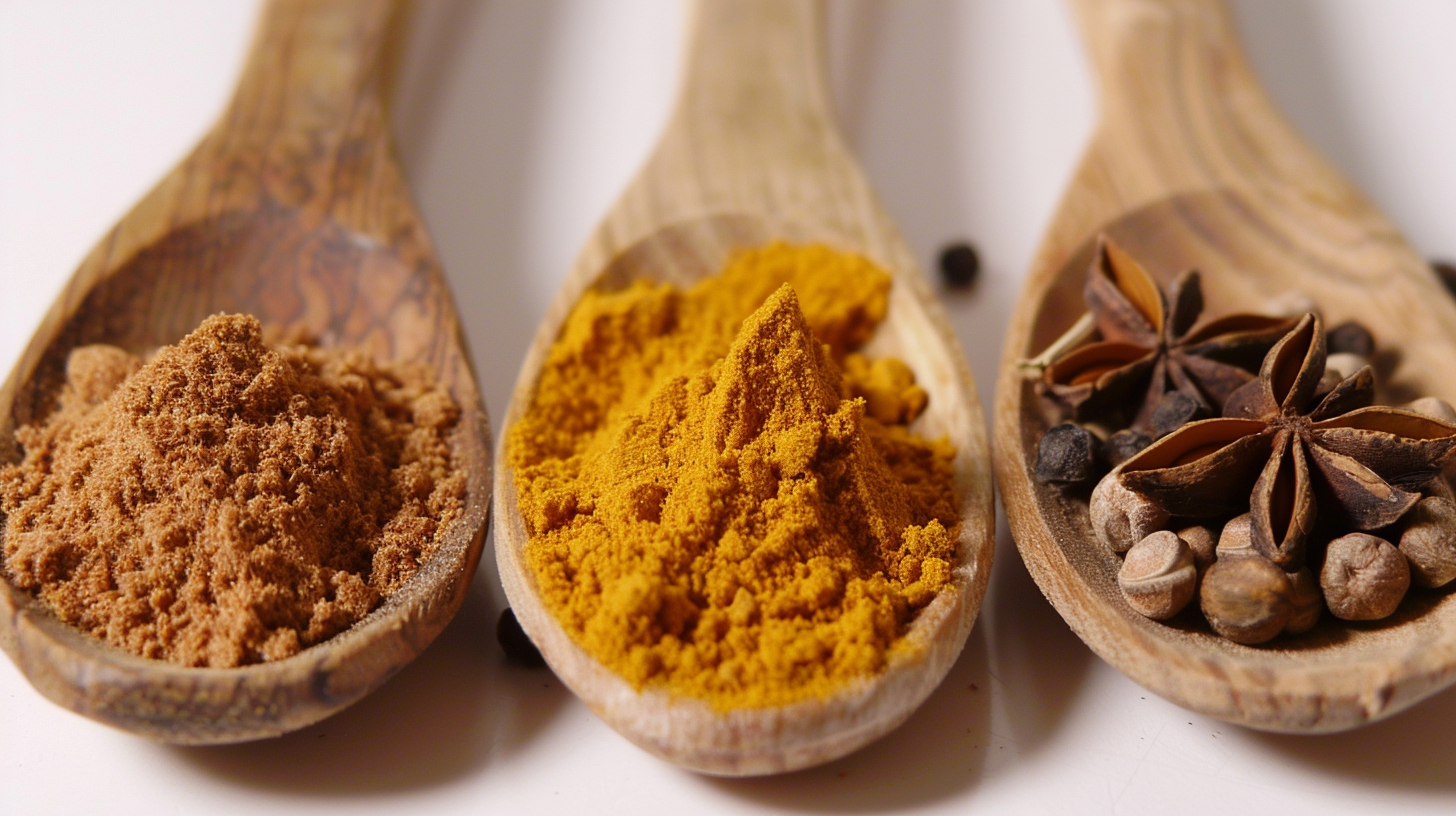
Managing blood sugar levels is crucial for overall health, particularly for those with diabetes or prediabetes. While medication and lifestyle changes play a significant role, incorporating certain spices into your diet can also provide natural support for blood sugar management. Here are three amazing spices that have been scientifically shown to help lower blood sugar levels naturally: cinnamon, turmeric, and fenugreek.
1. Cinnamon: The Sweet Solution
Scientific Backing: Cinnamon is perhaps the most well-known spice for blood sugar control. Research indicates that cinnamon can mimic insulin and increase glucose transport into cells, thereby lowering blood sugar levels. Studies have shown that cinnamon can reduce fasting blood glucose levels and improve insulin sensitivity.
How It Works: Cinnamon contains compounds like cinnamaldehyde and epicatechin, which have antioxidant and anti-inflammatory properties. These compounds help in reducing oxidative stress, a common issue in people with diabetes. Additionally, cinnamon slows the breakdown of carbohydrates in the digestive tract, which helps to moderate blood sugar spikes after meals.
How to Use: Cinnamon can be added to a variety of dishes and beverages. Sprinkle it on oatmeal, yogurt, or fruit. You can also add a teaspoon of cinnamon to your coffee or tea. For a more substantial dose, consider taking cinnamon supplements, but consult with a healthcare provider first.
Pro Tip: Ceylon cinnamon, also known as “true cinnamon,” is preferred over cassia cinnamon due to its lower coumarin content, which can be harmful in large amounts.
2. Turmeric: The Golden Healer
Scientific Backing: Turmeric, known for its vibrant yellow color, is a potent anti-inflammatory and antioxidant spice. Curcumin, the active ingredient in turmeric, has been extensively studied for its health benefits, including its ability to lower blood sugar levels. Studies have shown that curcumin can reduce blood glucose levels, improve insulin sensitivity, and even delay the onset of diabetes in prediabetic individuals.
How It Works: Curcumin works by suppressing the activities of inflammatory cytokines and enzymes that contribute to insulin resistance. It also enhances the functioning of pancreatic cells, which are responsible for insulin production. Moreover, curcumin helps in reducing the accumulation of fatty deposits in the arteries, thereby improving overall cardiovascular health, which is often compromised in diabetic patients.
How to Use: Turmeric can be used in a variety of dishes, from curries to soups. For maximum absorption, it is best consumed with black pepper and a fat source, as these enhance curcumin’s bioavailability. Golden milk, a traditional Indian drink made with turmeric, milk, and black pepper, is an excellent way to incorporate turmeric into your diet. You can also take turmeric supplements, but again, consult with a healthcare provider first.
Pro Tip: Combining turmeric with ginger, another powerful anti-inflammatory spice, can amplify its benefits.
3. Fenugreek: The Seed of Promise
Scientific Backing: Fenugreek is a lesser-known spice that has shown promising results in blood sugar management. Studies suggest that fenugreek seeds can reduce fasting blood sugar levels and improve glucose tolerance. The soluble fiber in fenugreek seeds slows down the absorption of carbohydrates and sugars, leading to more stable blood sugar levels.
How It Works: Fenugreek seeds contain a soluble fiber called galactomannan, which helps in reducing the rate of sugar absorption into the blood. Additionally, fenugreek seeds are rich in amino acids that induce the production of insulin. The antioxidant properties of fenugreek also help in reducing oxidative stress, further supporting blood sugar control.
How to Use: Fenugreek seeds can be used in cooking or taken as a supplement. They have a slightly bitter taste, which can be balanced by using them in savory dishes like curries, soups, and stews. Fenugreek tea is another popular option; simply steep the seeds in hot water for a few minutes. For those who prefer supplements, fenugreek capsules are readily available.
Pro Tip: Soaking fenugreek seeds overnight can reduce their bitterness and make them easier to incorporate into meals.
Integrating These Spices into Your Diet
Incorporating cinnamon, turmeric, and fenugreek into your daily diet can be a simple yet effective way to support blood sugar management. Here are some tips to help you get started:
- Consistency is Key: Regular consumption is essential for these spices to have a significant impact. Try to include them in your meals daily.
- Mix and Match: Combine these spices in various recipes for a powerful synergistic effect. For instance, a curry dish can easily incorporate both turmeric and fenugreek.
- Balance Your Diet: While these spices are beneficial, they should be part of a balanced diet rich in whole foods, including vegetables, fruits, lean proteins, and healthy fats.
- Consult a Healthcare Provider: Before making any significant changes to your diet or starting new supplements, it’s important to consult with a healthcare provider, especially if you are on medication for diabetes.
Conclusion
Cinnamon, turmeric, and fenugreek are three incredible spices that offer natural support for blood sugar management. Their unique properties not only help in lowering blood sugar levels but also provide additional health benefits, including anti-inflammatory and antioxidant effects. By incorporating these spices into your diet, you can take a flavorful and holistic approach to maintaining healthy blood sugar levels. Remember, the journey to better health is a combination of balanced nutrition, regular exercise, and mindful living.






Leave a Reply